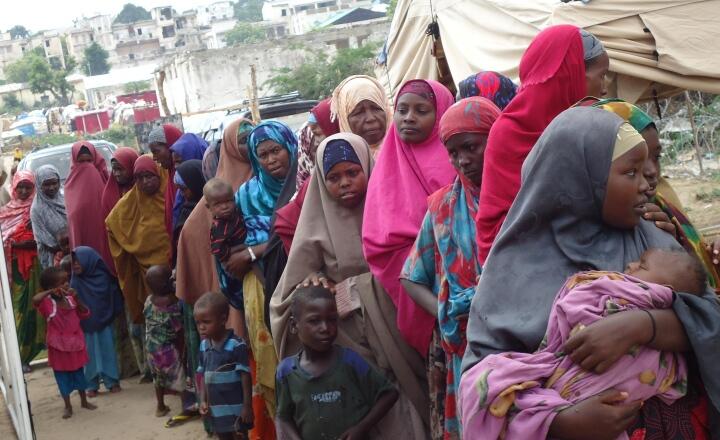
Violence against women in Somalia is reported to be among the highest in the world, yet many survivors and community leaders do not speak about it. One doctor, however, has refused to contribute to the silence.
“I can’t say that sexual violence will vanish in Somalia,” says Amal Ahmed*. “But I will do everything I can to give the women and girls who survive gender-based violence a chance to recover and rise.”
Since mid-2013, the International Rescue Committee has promoted community awareness about violence against women, setting up services for survivors and supporting health workers. Dr. Ahmed is one of several key staffers at the IRC-supported health facility in Mogadishu, where the first survivor of sexual violence sought support in February 2014. Since then, the IRC team has helped more than 30 survivors.
Their efforts have proved critical in a country where women and girls face challenging conditions due to the widespread violence, insecurity and displacement caused by two decades of conflict. According to the United Nations, 1.1 million people are currently displaced within the country, many of them women and girls.
Over 1,700 cases of rape were registered in Mogadishu and surrounding areas between January and November of 2012. But this figure is undoubtedly low, given that many survivors never report their experiences to the authorities for fear of reprisal or social stigma.
Because of the devastating consequences of violence against women, immediate medical and psychological assistance is critical for survivors to recover. In Somalia, however, the erosion of the national health system over many years of conflict severely limits access of survivors to appropriate care. As a result, the IRC has focused efforts on strengthening the network of health care workers in the region.
As a result, the IRC has focused efforts on strengthening the network of health care workers in the region.
Dr. Ahmed is just one of many doctors who have received training through the IRC’s multimedia tool created in collaboration with UCLA (the University of California, Los Angeles). The program aims to improve care for survivors of sexual assault in areas where resources are scarce, and to develop health workers’ awareness of social and cultural barriers to caregiving.
For instance, protecting survivors from further harm and maintaining confidentiality are essential if they are to recover. In many cases, relatives pressure health workers to divulge details of sexual assault in order to punish the perpetrator. In others, community and family members seek retaliation against the survivor.
Dr. Ahmed had been practicing medicine for two years when she joined the IRC in 2013. Her experience working within the gender-based violence (GBV) programme has changed the way she sees herself as a doctor and how she approaches caregiving.
“I was always a compassionate doctor and I took good care of all my patients, but of course the GBV survivors need something different from me, and I am more aware of that now,” she says. “The skills I gained through the trainings and clinical experience helped me better understand what survivors need in order to go back to everyday life.”
Although the IRC’s GBV programs in northeastern and south-central Somalia are at an early stage, Dr. Ahmed is sanguine about their influence on a wide range of challenges. “I believe that by creating awareness, training health staff and providing quality services, we can reduce these obstacles.”
Adds Dr. Ahmed, “The Somalia GBV program opens a small window of hope and opportunity to those who lost faith, and I am proud to be a part of that.”
Read more about the IRC's work in Somalia.
For security reasons, her name has been changed.